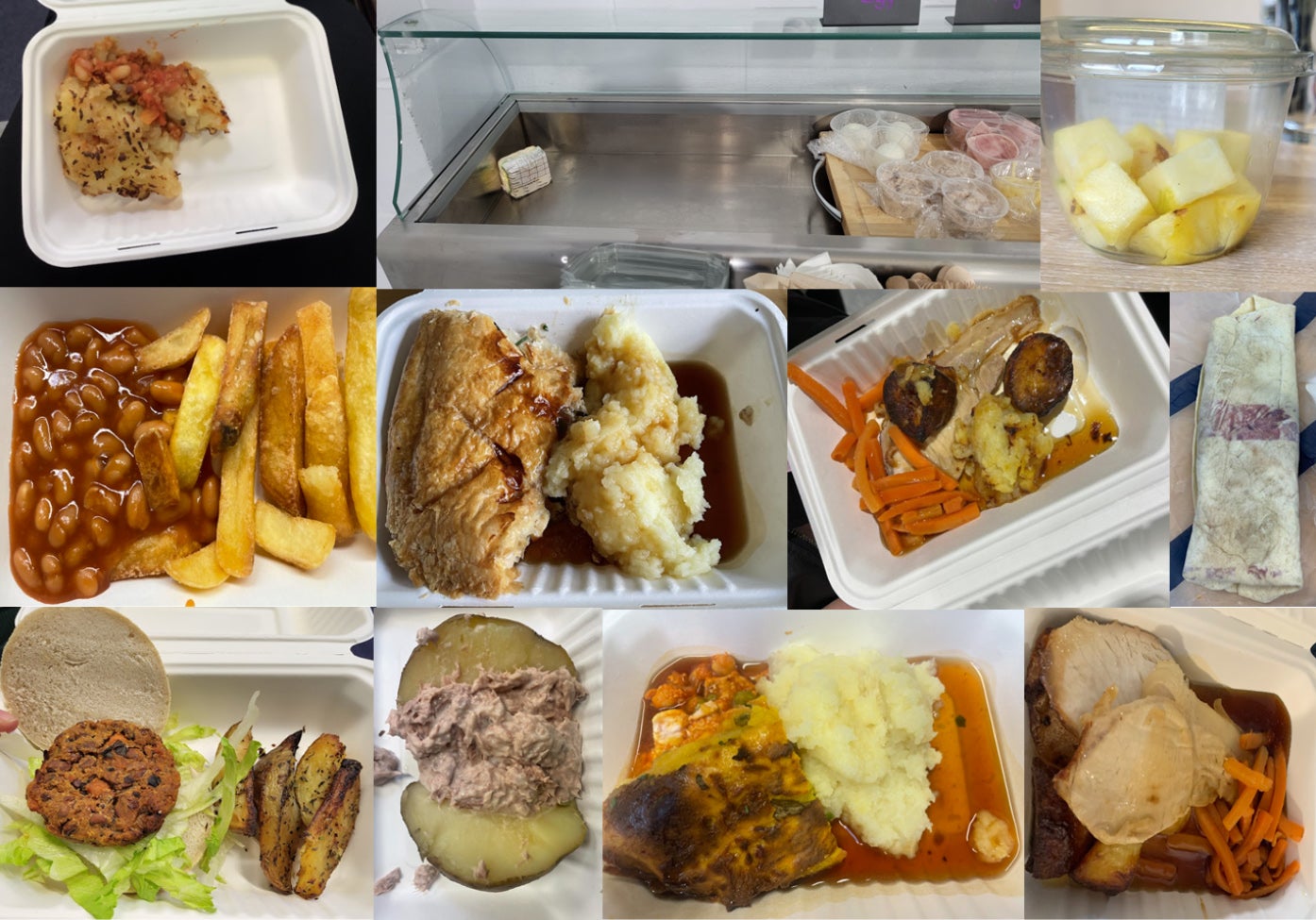£2.53 per meal? No wonder our school kids are being fed cold potatoes
A headteacher in Southampton has apologised to parents for the ‘completely unacceptable’ lunches being fed to students. But what do we expect, asks Dayna Brackley – when it comes to food, you get what you pay for...


What can you buy for £2.53? A Sainsbury’s meal deal? Nope, that’s £3.50. A two-pack of chicken breasts? £4.25. For a latte you’ll need at least £2.80. With rampant food inflation over the last couple of years, there’s not a lot you can get for £2.53 – but that is the meal rate set by the government for a school lunch (oh, and you need to pay for school cooks and kitchens out of that, too).
It’s International School Meals Day today, and there’s a lot of focus on school food quality after a Southampton headmaster sent a letter to parents despairing that the school food offer was “completely unacceptable”. Now admittedly this food doesn’t look great – undercooked baked potatoes, ultra-processed food, and not an appetising vegetable in sight – but I think we’re focusing our dismay in the wrong place. It is the government that sets what is called the “per meal rate” and that per meal rate is £2.53.
It was £2.30 way back in 2013, and has only recently started to increase. In that time the price of food has skyrocketed, staff costs have increased, and energy bills have risen. It is not surprising that some caterers struggle to deliver healthy, nutritious food.
Why are we underfunding something as crucial as the food our kids eat at school? Numerous studies show that school food can be transformative. Children on free school meals are more likely to eat more fruit and vegetables and are less likely to be obese. They are more likely to concentrate better and be ready to learn.
The Department for Education found that children on free school meals did better in Maths and English. Investing in school food is even good for the economy, delivering a £1.71 return for every pound invested. Not only do we underfund it, but the government also places extraordinary caps on those who can access it. If you earn more than £7,400 a year before benefits (yes, that figure is correct), your child cannot obtain free school meals in nurseries and schools.
To top it off, there are 250,000 children who are entitled to free school meals but don’t get them. Why? Because children aren’t automatically awarded free school meals – you have to opt in to receive them. Anecdotally, I’m told the computers “don’t talk to each other”. Different government databases hold benefits and school information – the computer says no.
As Henry Dimbleby said, “It cannot be right to let paperwork stand between a child and a hot meal.” That’s why today over 130 councils, charities and education leaders have signed an open letter to the government asking them to make the system work and to ensure that the 11 per cent of pupils entitled, but not receiving, free school meals get to have them.
For the record, there’s some amazing school food out there. Schools and caterers work incredibly hard to make the most out of very little money – but more can be done. There are school food standards, but they are outdated. We do not have the right checks in place. The School Food Review group has been calling on the government to tackle access, funding and quality for a long time. Myles Bremner, coordinator of the School Food Review says “The evidence is overwhelming. Children eating great school meals is good for our future health, wealth and happiness. But schools need better support, better transparency, better funding. The answers are all there with brilliant examples. But the government must and can act.”
But first things first – let us ensure that there is sufficient money in the system. The charity School Food Matters is already working with the school food industry on the true cost of a school meal – but why isn’t the government doing this? The answer is that they don’t want to know, because if they did, they would need to do something about it. I’m hopeful that the next government will take up the mantle.
It is what parents want – new polling from the Children’s Food Campaign showed that 89 per cent of parents wanted schools to offer a good range of healthy meals. We need to invest in our children and in our school food. As Michael Marmot said, “There are fewer needs more basic than nutritious food for you and your children ... a healthy society must pay attention.”
Dayna Brackley is a senior food policy consultant at Bremner & Co. She is also an MSc student at the Centre for Food Policy
Join our commenting forum
Join thought-provoking conversations, follow other Independent readers and see their replies
Comments
Bookmark popover
Removed from bookmarks